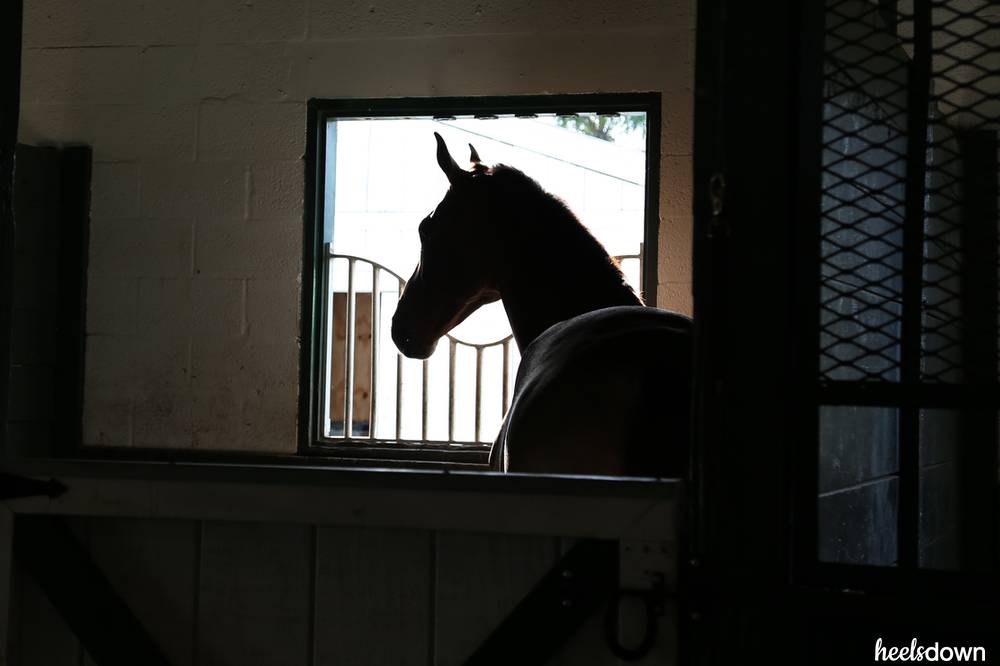Don’t Judge: Horses are My Xanax

Mental health has become a hot topic in recent years. Celebrities have made their struggles public, the younger British Royals have used their platform to bring awareness, and most recently, the loss of tWitch, a celebrity dancer and TV personality, to depression has sparked renewed conversation around mental health and disease.
For those who have this disease, the struggle is real. For the last several years, I have been diagnosed with and treated for depression. Thankfully, mine is not severe. Usually people think of depression as a loss of interest in activities and relationships or a lack of energy. For me, the symptoms generally manifest as irritability and outbursts of anger (which, btw are more common symptoms for women). These symptoms are not life-threatening, but they do cause stress on my
relationships and my ability to function normally through my day. I have gone through periods of time that just, well, sucked so much that I did not want to have to experience life for the next few months. What got me through that time was the knowledge that the sucky situation would pass and things would get better.
But what if I did not have that hope? What if I thought it was never going to get better or pass? That is where depression becomes deadly.
In the last year I have also had the pleasure of experiencing symptoms of another mental health condition that often accompanies depression- anxiety. It generally feels like tension, a rubber band in me that is wound so tightly that it feels like it is going to snap. And sometimes it does, with again, outbursts of anger.
So what does that have to do with horses? Well for me, as I would guess it is for most equestrians, horses are scientifically proven to be great for mental health. It makes sense, because it combines so many practices which are beneficial for mental health- being present, physical activity, getting outdoors, and connectivity (for more ideas on ways to improve wellness, try these.)
In conjunction with the rise of awareness of mental health, the practice of mediation has gained popularity. Neuroscientists have found the practice of being present and mediation reduces anxiety. I honestly have not really ever found the need to do a separate mediation practice because my time in the saddle is exclusively riding time. My focus was on my horse because, if my mind started to wander, I was usually on a horse that would take advantage of my distraction and find something spooky. Now it has almost second nature, I am focusing so much on my riding that nothing interrupts it.
The physicality of riding is an obvious benefit as well. I have participated in physical activity that is solely focused working up a sweat, from CrossFit to spin classes. The feel-good chemicals that follow a work-out are real, and riding certainly works up a sweat. Finding time to get outdoors and commune with nature has also been found to reduce symptoms of depression and anxiety. And guess where riding mostly takes place? Outdoors!
Relationship building and interaction is also key for keeping depression symptoms at bay. Even if I am in a barn where I do not have a strong barn family, I am always connecting to my horse. Honestly, if my symptoms are bubbling near the surface, I don’t really want to be around people. My horse doesn’t care if I talk his ear off or if I’m more sullen. He likes my mints and I don’t need to feel good to give him one of those.
Since having been diagnosed with anxiety, I have been prescribed and taken medications to treat its symptoms, including Xanax. I do not take it more than once or twice a month, because it can be habit-forming, but it is very effective. That tight rubber band in my chest loosens immediately and I become the walking personification of “no f*cks given.” But riding has a very similar effect, loosening that rubber band and allowing me to feel like I can breathe. Let me say that again, riding has a similar effect for my mental health as taking Xanax, a prescribed,
addictive medication. The effect of riding is not nearly as immediate or as strong as a medication, but on the plus side, my riding does not have any other deleterious effects on my health.
So why did I take the time to disclose my mental health journey? I am lucky to have a very supportive system that allows me the resources to ride and enjoy my horse. It is very easy to look at an equestrian’s life and ask why they choose to ride when there are other less expensive and less demanding activities. It is easy to say that, but for me to find something that was as positive for my mental health, I would have to find an activity that combines physical activity, mediation, and connectivity of riding. I have tried other activities that fit those characteristics but found them too boring (I’m looking at you, yoga). For me, nothing comes close to riding.
If I cut riding out of my life, would I be depressed? No, I’m already depressed. But if my symptoms were not well managed, I would strain the relationships most important to me, weaken my support system, and it would be totally unfair to them. Could I manage these symptoms with some other activity or medication? Maybe. But right now I have a wonderful family, a great career, and also get to enjoy a super cool horse. For anyone with an equestrian in their life, try not to treat their hobby as a detriment, but be kind and be thankful they have a passion that helps them jump out of bed every day. There are many equestrians out there who are suffering from
depression and you never know how important these horses are to us.
If you think you need help, please contact https://988lifeline.org


